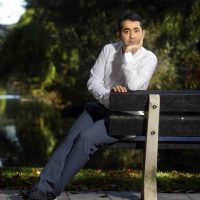Imagine a time when universities served as society’s moral compass, when scholars stood for truth and justice. One such moment was when Professor Rudolph Cleveringa of Leiden University delivered a courageous speech protesting the forced dismissal of his colleague during World War II. He knew the consequences of his words, yet he chose to speak, emphasizing scientific merit over discrimination. His courage led to his imprisonment by the Security Services, but his legacy remains a symbol of academic integrity and fearless advocacy. However, his speech was not just a historical moment, it also raised awareness. Students shared his words, and as a result, the university was shut down by the occupying forces.
Now, consider the issue of nationality-based screening at Dutch universities, which deprives certain individuals of scientific participation solely due to their origin. While silence prevails and individuals endure this deprivation quietly, I am certain of one thing: those who do not speak out against injustice will not be the ones to change society for the better, even though our TU Delft’s mission calls for it.
Just this month, decisions were announced to expand this policy, and strangely, the only concern for universities seems to be the budget required rather than their moral responsibility or ethical considerations.
Through this silence, universities become passive enforcers, unquestioningly implementing directives
Many colleagues from these targeted countries who work within this system are constantly worried about how this policy might expand and affect their research. At the same time, universities claim to foster socially safe environments and uphold academic freedom. We acknowledge the importance of national security and certain limitations, but through this silence, universities become passive enforcers, unquestioningly implementing directives. Worse, they empower opportunists within academia to put even more pressure on these individuals, knowing that there is no institutional support, simply because of their origin.
I believe universities must facilitate open discussions and strive for greater transparency on this issue. I also suggest that Leiden University, which established the Cleveringa Chair, use this platform not just to revisit a story from 80 years ago or discuss abstract concepts, but to address ongoing injustices in academia today. Ensuring such transparency is crucial because without it, double standards in universities will persist: where swift, explicit, and conviction-driven statements from rectors and academic institutions are reserved only for non-politically friendly countries, while there is reluctance to address outrageous violations of human dignity in politically allied ones, even when students and academics raise concerns, and even when condemned by the International Court of Justice or Supreme Court in the Netherlands.
Perhaps those pioneers of justice are now better suited as statues, admired from a distance rather than serving as inspirations. However, as just one observer, I will close with the words of Cleveringa’s speech which still hold true today: “And meanwhile, we wait and trust and hope, and hold in our thoughts and our hearts the image, figure, and character of the person who – we cannot cease to believe – ought to stand here, and who, God willing, will resume his place here.”



Comments are closed.